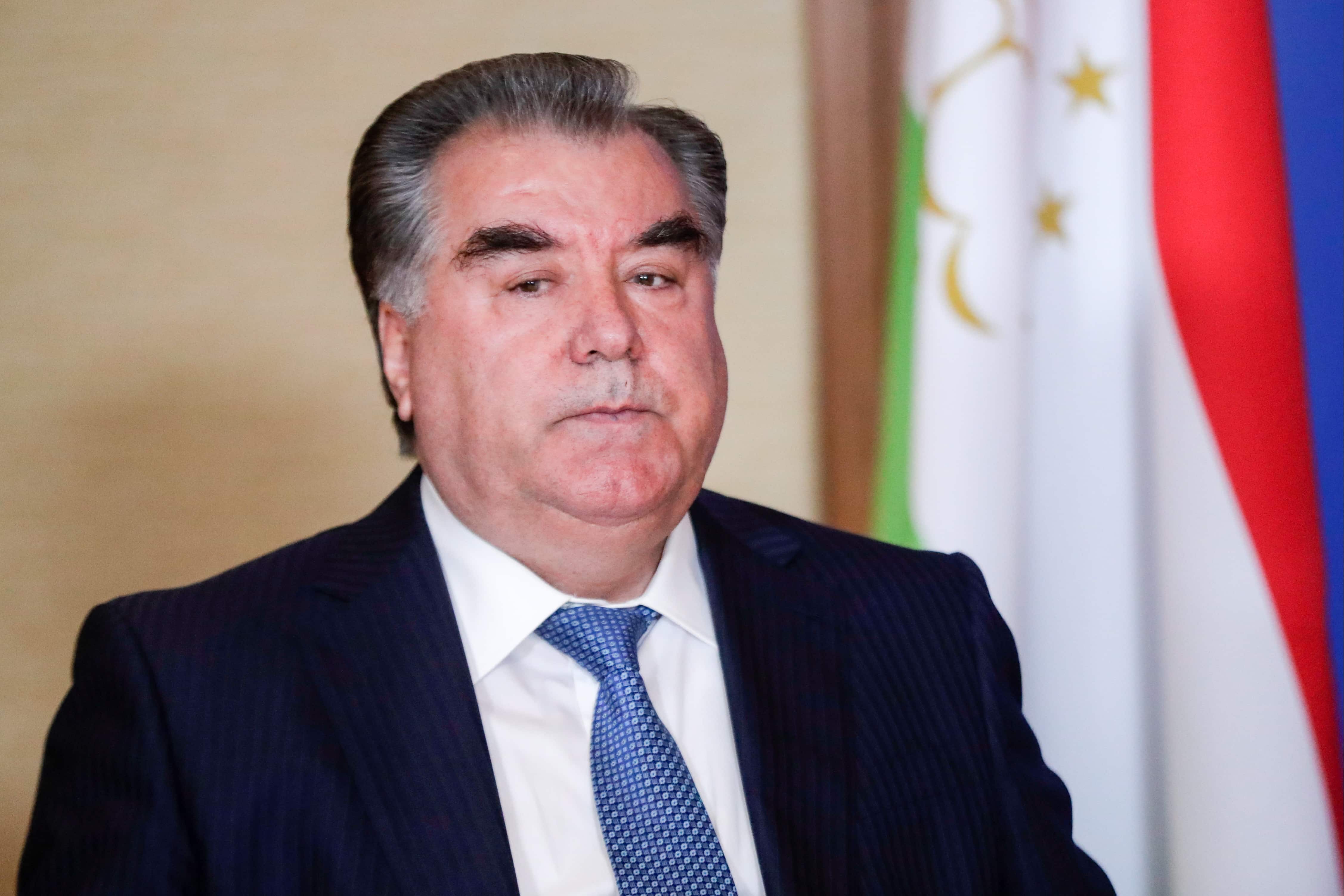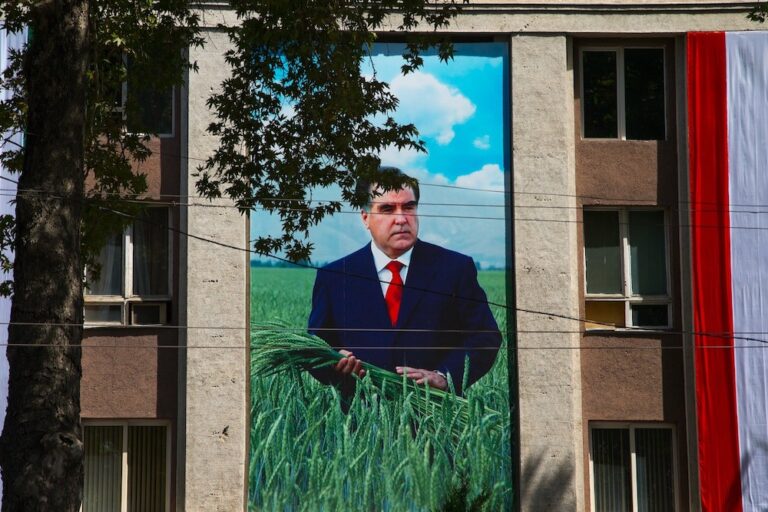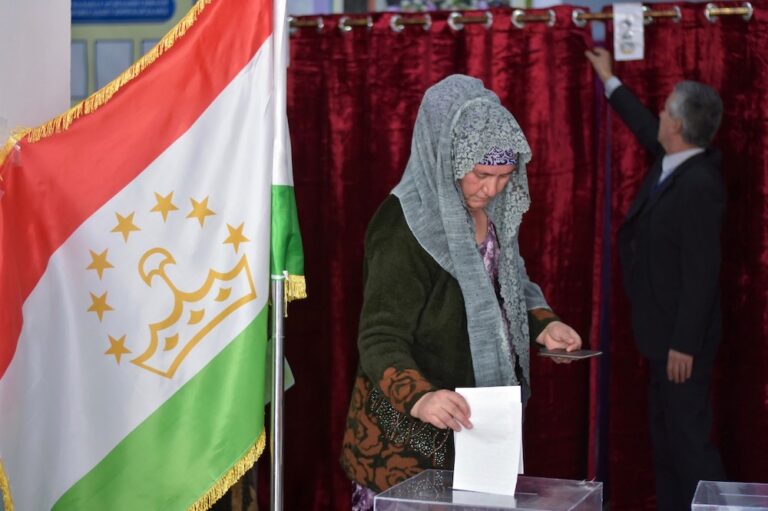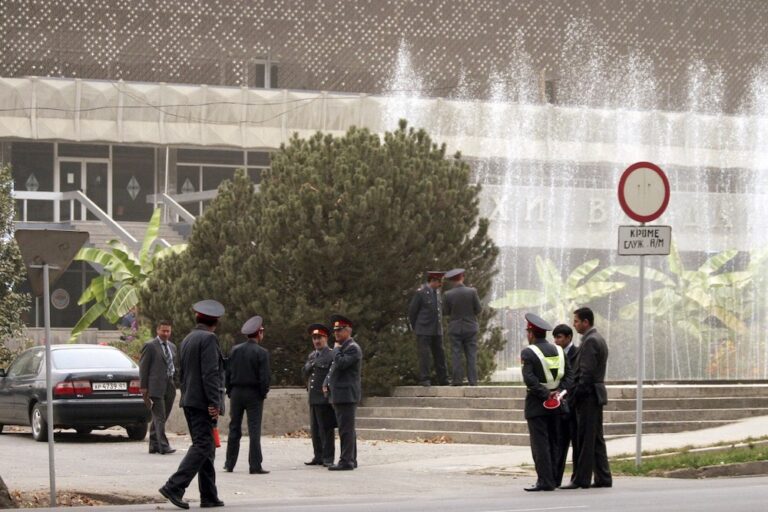Mirsaidov was charged with embezzling and misusing state funds and false reporting to police after he made corruption allegations against local government officials.
This article was originally published on hrw.org on 13 July 2018.
(Bishkek) – A court in Tajikistan on July 11, 2018, convicted a well-known journalist on bogus charges and sentenced him to 12 years in prison, Human Rights Watch and the Norwegian Helsinki Committee said. Khayrullo Mirsaidov was charged with embezzling and misusing state funds and false reporting to police after he made corruption allegations against local government officials.
The United States, European Union member states, and Tajikistan’s other international partners should publicly and privately press Tajik authorities to set aside the conviction. They should also communicate the consequences on their bilateral relations of the arbitrary detention and ill-treatment of hundreds of government critics, including opposition leaders, lawyers, and journalists. Washington and Brussels should make clear that targeted punitive measures against Tajik officials responsible for egregious human rights abuses are possible unless concrete improvements are made.
“If allowed to stand, this conviction and draconian sentence strike a blow to free speech and the journalistic profession in Tajikistan,” said Steve Swerdlow, Central Asia researcher at Human Rights Watch. “Sadly, we now add a journalist known throughout the region for the high quality and independence of his work to the ranks of Tajikistan’s numerous other imprisoned political activists and lawyers.”
The regional Prosecutor General’s Office arrested Mirsaidov, 39, in Khujand, in Tajikistan’s northern Sughd region, on December 5, 2017, on charges of embezzlement; incitement of interethnic, national, or religious hatred; forgery; and providing false testimony after he voluntarily appeared at the prosecutor general’s office for questioning. The charges were brought after Mirsaidov appealed to Tajikistan’s president to crack down on corruption by local authorities. Authorities later dropped the charges of incitement.
The conviction followed a deeply flawed investigation. Prosecutors issued a gag order preventing Mirsaidov’s attorneys from discussing the case in public and severely limiting Mirsaidov’s access to the alleged evidence against him. He was held in pretrial detention for seven months through the end of his trial, which began in June, though he had no criminal record, and no charges alleging violence. His lawyer said she will appeal the verdict.
In a joint statement, the US and EU member states, including the UK, Germany, France, and the EU delegation in Tajikistan moved swiftly to condemn Mirsaidov’s sentence, calling it “extremely harsh” and “incompatible with the crime he was accused of.” They said that “[t]his sentencing will have a negative impact on the freedom of media and expression in Tajikistan,” and urged Tajik authorities to re-consider this verdict.
On the same day, Harlem Desir, the Organization for Security and Cooperation in Europe’s (OSCE) representative for freedom of the media stated that he was “alarmed by the stringent and disproportionate sentence handed down to the journalist,” especially given the relatively small sum of 124,000 Somoni (approx. €11,521) he was accused of embezzling. Desir reiterated his earlier call for Tajik authorities to immediately release Mirsaidov and “ensure that journalists in Tajikistan are free to report on all matters of public interest without fear of reprisal.”
In November 2017, Mirsaidov wrote an open letter to President Emomali Rahmon, Prosecutor General Yusuf Rahmon, and the head of the Sughd region, Abdurakhmon Kodiri, asking them to investigate an allegation of corruption. His letter detailed alleged attempts by the head of the Sughd Department of Youth and Sport to solicit a US$1,000 bribe from the funds Sughd authorities allocated to the local youth satirical comedy troupe – known commonly by its Russian acronym KVN – that Mirsaidov manages. The funds were intended to pay for microphones and other equipment for the troupe.
Over the past 18 years, Mirsaidov has earned a reputation for fearless, independent journalism and solid political analysis. He has reported for Deutsche Welle, Asia-Plus, and the Fergana media outlets, among others. Mirsaidov has often written about human rights issues, ecological problems, and respect for ethnic minorities. He also worked as a media development trainer in projects sponsored by the OSCE, the United Nations Development Program (UNDP), the UK government’s Department for International Development (DFID), and the Index on Censorship, a nongovernmental group.
Mirsaidov has managed the Sughd region’s competitive KVN team since 2014, leading the comedy troupe to the finals and to win championships in Bishkek, Sochi, and Moscow. KVN comedy competitions have a long and popular tradition across the former Soviet countries and are known for including political satire.
Tajikistan’s appalling human rights record deteriorated further in 2018, as authorities intensified a widespread crackdown on free expression and association, peaceful political opposition activity, the independent legal profession, and the independent exercise of religious faith. Well over 150 political activists, including a number of lawyers, remain unjustly jailed, and relatives of dissidents who peacefully criticize the government from outside the country have been subject to violent retaliation orchestrated by authorities, including arbitrary detention, threats of rape, confiscation of passports and property, and vigilante justice at the hands of sometimes violent mobs.
Over two years, at least 20 journalists have fled the country, fearing prosecution for their professional activities. Journalists perceived to be critical of the government risk harassment and intimidation.
“Tajikistan’s international partners should publicly and unanimously condemn this mockery of justice,” said Marius Fossum, Central Asia representative of the Norwegian Helsinki Committee. “Tajikistan’s human rights situation has been spiraling downward at a rapid pace and the time has come for Washington, Brussels, and all actors to examine the possibility of enacting targeted punitive measures unless immediate human rights improvements are made.”



